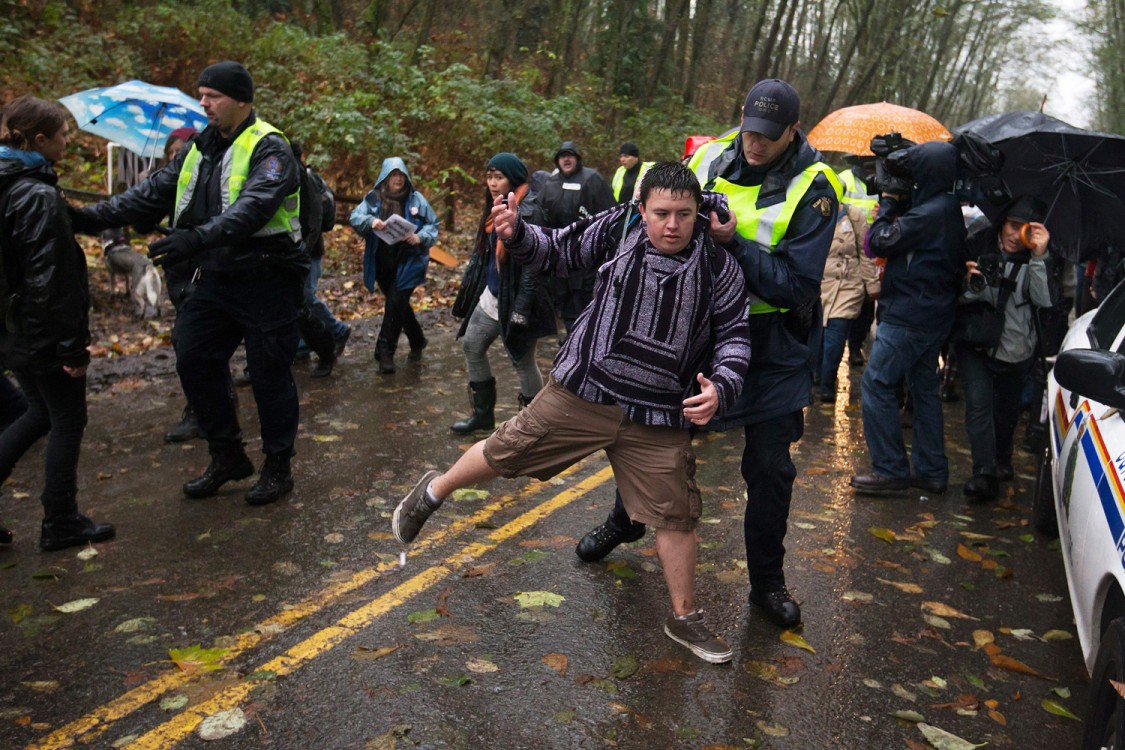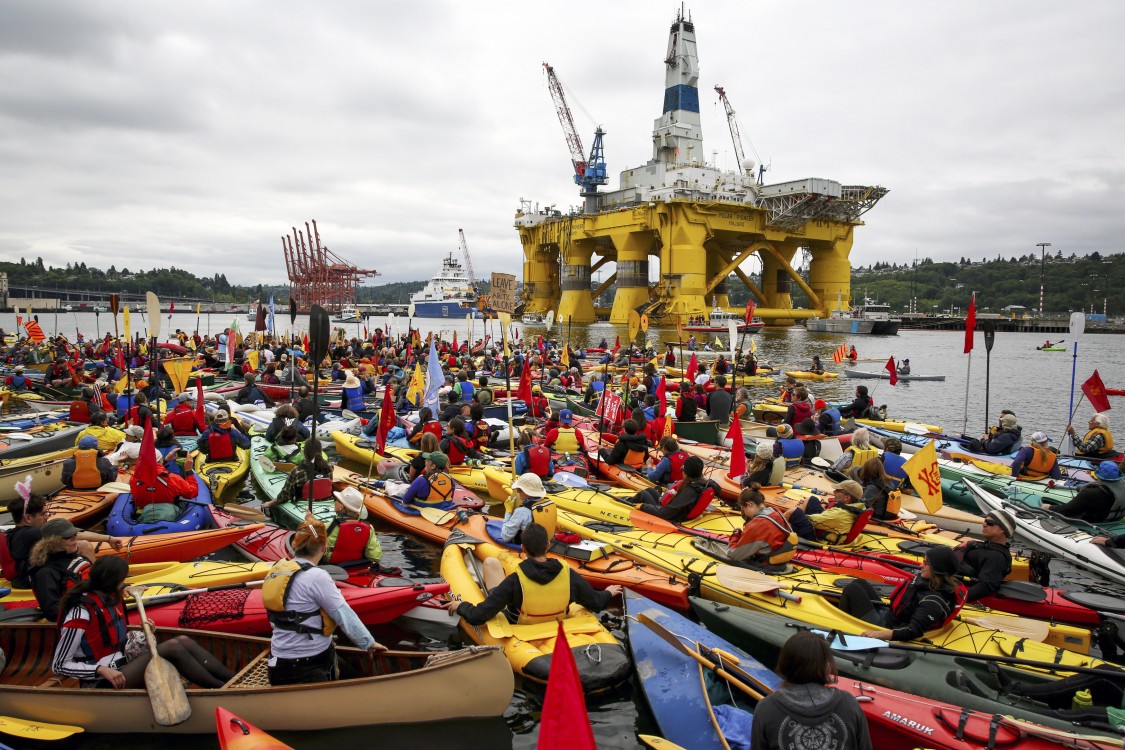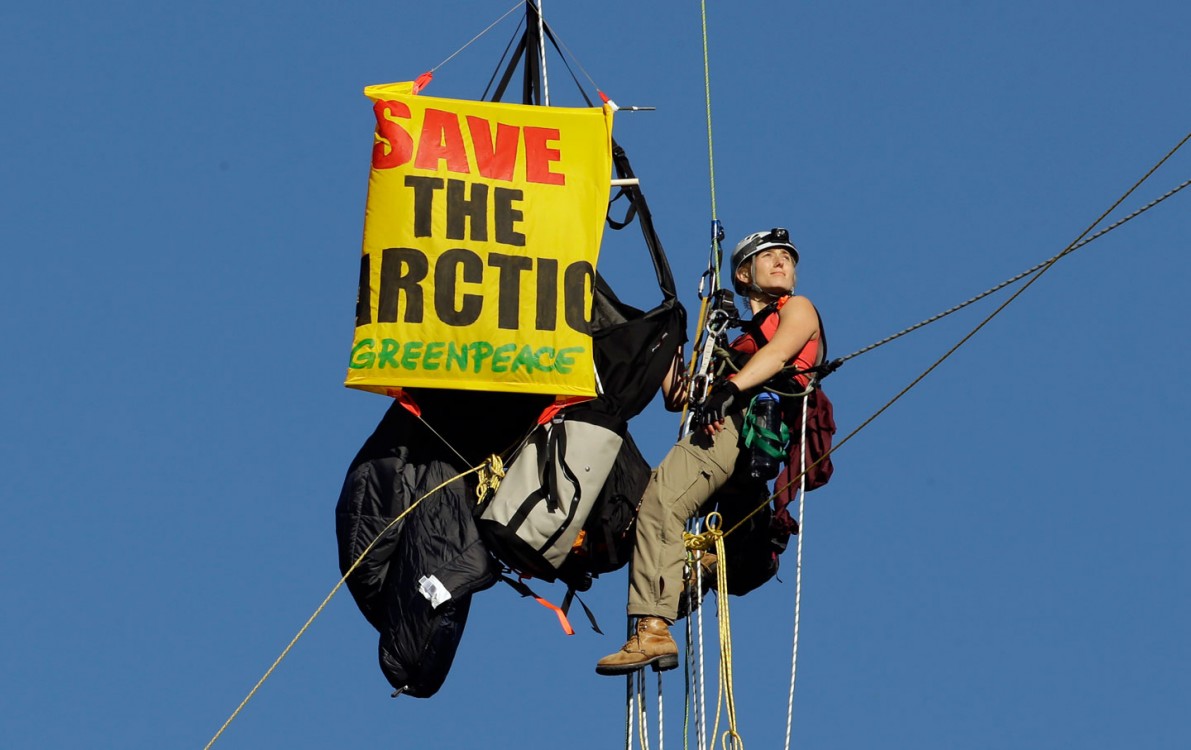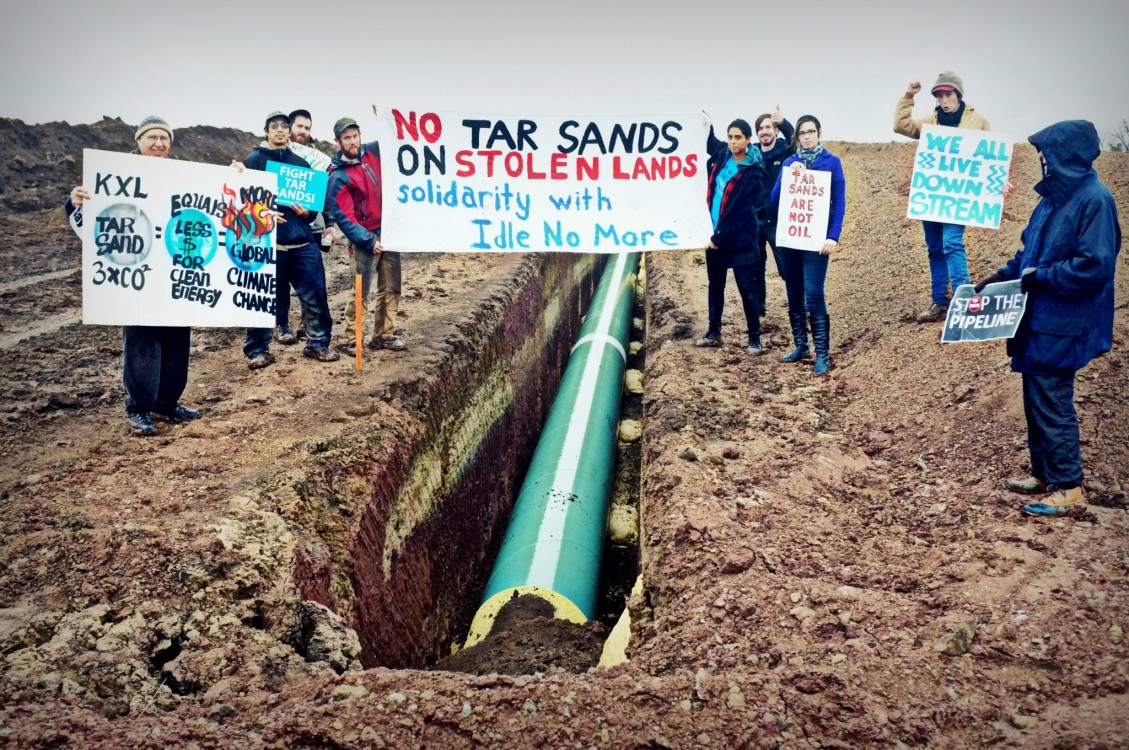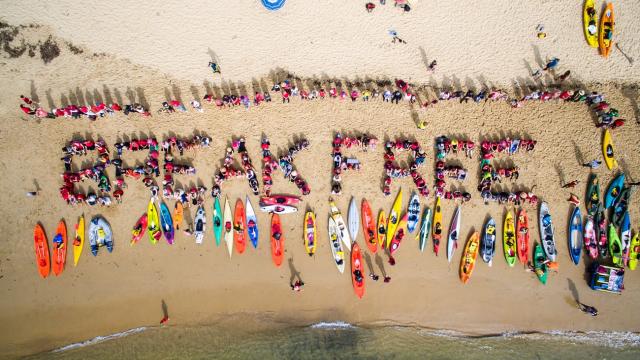
How the world can stay below a 1.5°C degree rise in temperature is a crucial question. While there is scientific consensus that climate change is manmade, there is less common ground on whether climate negotiations can actually solve it.
This year, the international climate process steered by the Intergovernmental Panel on Climate Change (IPCC) will release a Special Report on the prospects of staying below 1.5 degrees. To date, climate negotiations have been weakened by capture from Big Oil. Climate models often follow the logic that business as usual will continue without international agreement.
Some scientists alter their outlooks based on renewables growth or dirtier fossil fuel extraction. Others propose potentially dangerous carbon capture as illusory magic bullets. All models agree we need urgent action but none of them accounts for people power swiftly shutting down the fossil fuel industry.
Yet resistance to carbon intense industries is swelling. Whether or not the IPCC Special Report details the most polluting projects that need to be stopped, many agree on the need to share lessons gained from different fights in order to keep the carbon below the earth – so we can continue living above it.
How is People Power Keeping Carbon Below Ground?
Simply put, the less we burn the better. Go deeper, and clearly some Big Oil projects are dirtier and more dangerous: Some fuels take more energy to extract, while others emit more when burned. Other projects destroy carbon sinks, like the forests that soak up greenhouse gases.
A further factor is that we should stop gateway extraction processes, particularly in vulnerable environments, which encourage other extraction or industries. Stopping extraction projects from going to the poles, or into rainforests, are several ways to save precious ecosystems and stop gateway extractivism.
The leadership we see lacking in global climate negotiations stems instead from local communities – often indigenous defenders – who are bolstered by a growing international movement. Called Blockadia, direct action activists and campaigners are increasing their tactics to include climate litigation, divestment and action against the whole carbon supply chain. Robust renewables development also shows we have the viable alternatives to replace dirty fuels.
Below, we chart four key fossil fuel battlegrounds that are rich in resistance – and fertile for even broader cooperation and skill sharing.
1. Rainforest Seeds
Blockadia first referred to the indigenous-led struggles against Big Oil in the rainforests of Ecuador and Nigeria. The devastation of Ecuador, known as the 'Rainforest Chernobyl', and the Ogoni people of Nigeria, forewarn us of the dangers facing the world's remaining rainforests, which serve as crucial carbon sinks. In both Ecuador and Nigeria, local communities united in peaceful protests, even in the face of state-sanctioned violence and murders, including the death of Ogoni poet-turned-activist Ken Saro-Wiwa. The drilling was stopped, but the legacy of pollution remains and the fight for justice continues in courts.
Across the Amazon and other forests, Big Oil continues to face Blockadia resistance. One strong tool of resistance involves applying indigenous rights. In Brazil, indigenous groups successfully fought for land rights to keep out Big Oil, although the new Brazilian government plans to tear up these agreements. Globally, the campaign to strengthen indigenous land rights provides a means to protect swathes of bio-diverse rainforests and other carbon sinks.
2. Oceans
The ocean is the world's greatest carbon sink, so protecting it is vital to tackling climate change. One struggle to protect both forest and sea is the growing fight against Big Oil happening at the coral reefs outside of Brazil's Amazon delta. And north on the Caribbean coastline, Belize is a success story where resistance has prevented oil drilling on its coral reef-rich coastline. After a citizen-led awareness campaign, the Belize public voted for a moratorium on oil drilling in coastal waters in late 2017.
The dangers of deep sea drilling were exposed by the catastrophic Deepwater Horizon spill in the Gulf of Mexico in 2010. Despite this, President Donald Trump has attempted to open up deepwater drilling across the whole of the U.S. seaboard, moves that have been replicated in China and Brazil. These new developments will require people-led resistance connected to an international campaign.
As host of the recent UN climate negotiations, Fiji ramped up calls for international agreements to protect oceans. Further marine protection areas are being proposed worldwide, and Belize shows us that bottom-up campaigns are essential to see these protections realized.
3. Polar Protection
The Arctic and Antarctic are two of the world's most ecologically sensitive areas also interconnected with the ocean. In the far south, a campaign is growing to create a drilling-free zone to pre-empt oil drilling and other extractivism.
In the Arctic, Big Oil has already encroached. But the people of this sparsely populated region, in combination with an internationally mobilized campaign, have slowed this move. Indigenous struggles against Arctic drilling have already succeeded in court battles like last year's Canadian Supreme Court ruling.
A court case against Norwegian Arctic drilling recently failed, although it placed even more public attention on the issue. Moving forward, if more than 40 nations of indigenous peoples' land and cultural rights were protected by law, this alone would keep an immense amount of oil below the ground and ice.
4. Stopping the Dirtiest Energy
Perhaps the most recognized Blockadia struggles are the fights against dirty energy such as tar sands and pipelines in North America, not least Standing Rock. Resistance struggles there have employed many of the peaceful tactics first used in Ecuador and Nigeria.
Meanwhile, in Germany a similar fight is taking on lignite coal. And the British anti-fracking movement has turned to rolling blockades against the whole fracking infrastructure. Successes include divestment victories; for instance, recently the insurance giant Axa pulled out from underwriting tar sand pipelines. Other bottom-up led campaigns have secured moratoriums against fracking in Scotland and the Basque Country.
One crucial aspect in the fight against dirty energy is the fact that attention and international campaigns have put a spotlight on struggles in the global south. To tackle climate change, it is as important to stop Venezuelan tar sands, fracking in South Africa, or India's internationally backed coal boom, as it is to blockade dirty energy in the global north.
In terms of the broader fight against climate change, every effort to reduce manmade emissions must be strengthened. This includes other Blockadia struggles against emission sources like the meat industry, palm oil, the military industrial complex and global aviation. Until climate negotiations start specifying what must stay below ground, Blockadia is the strongest chance of maintaining the world's inhabitability.
3 WAYS TO SHOW YOUR SUPPORT
- Log in to post comments

